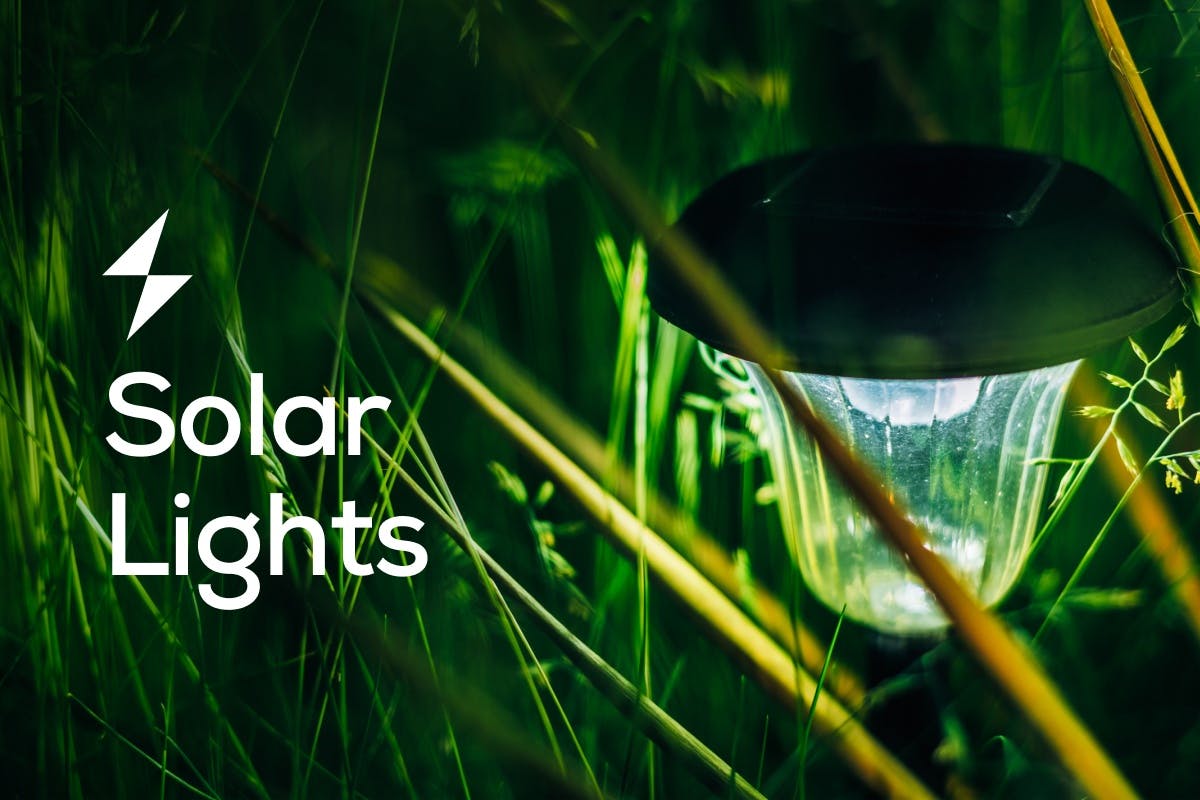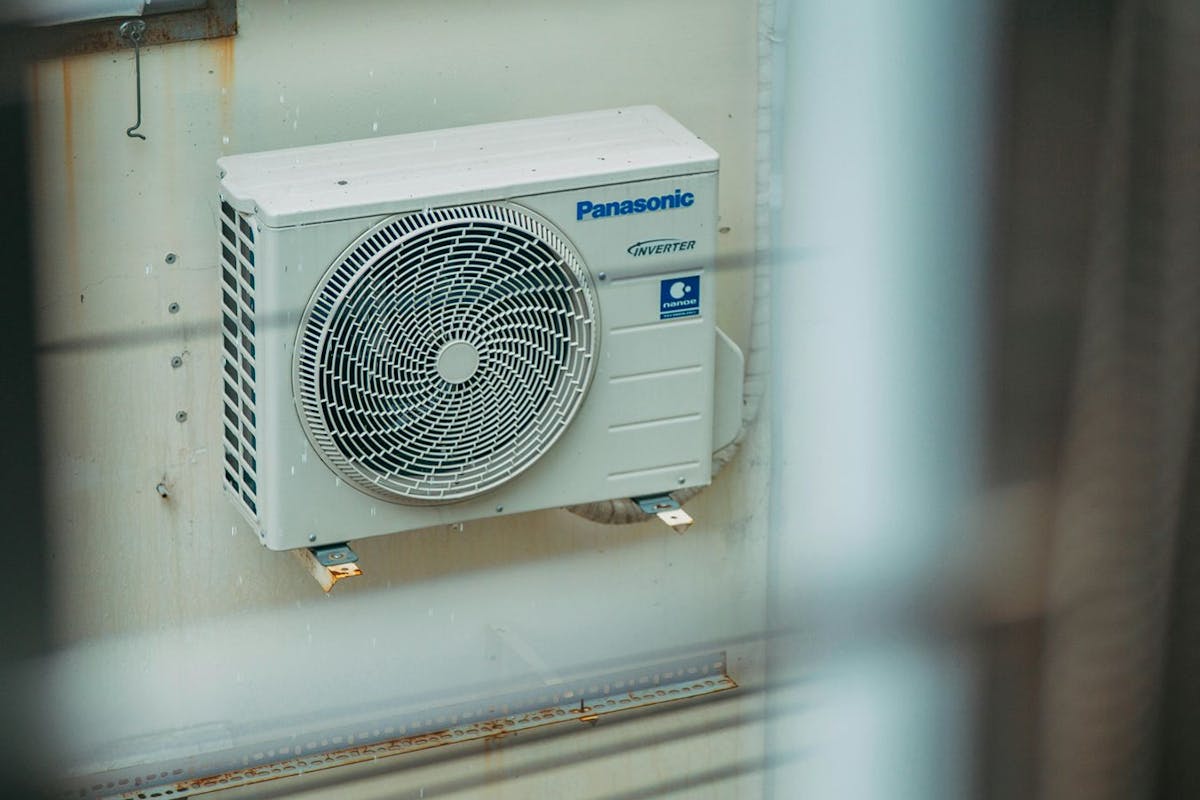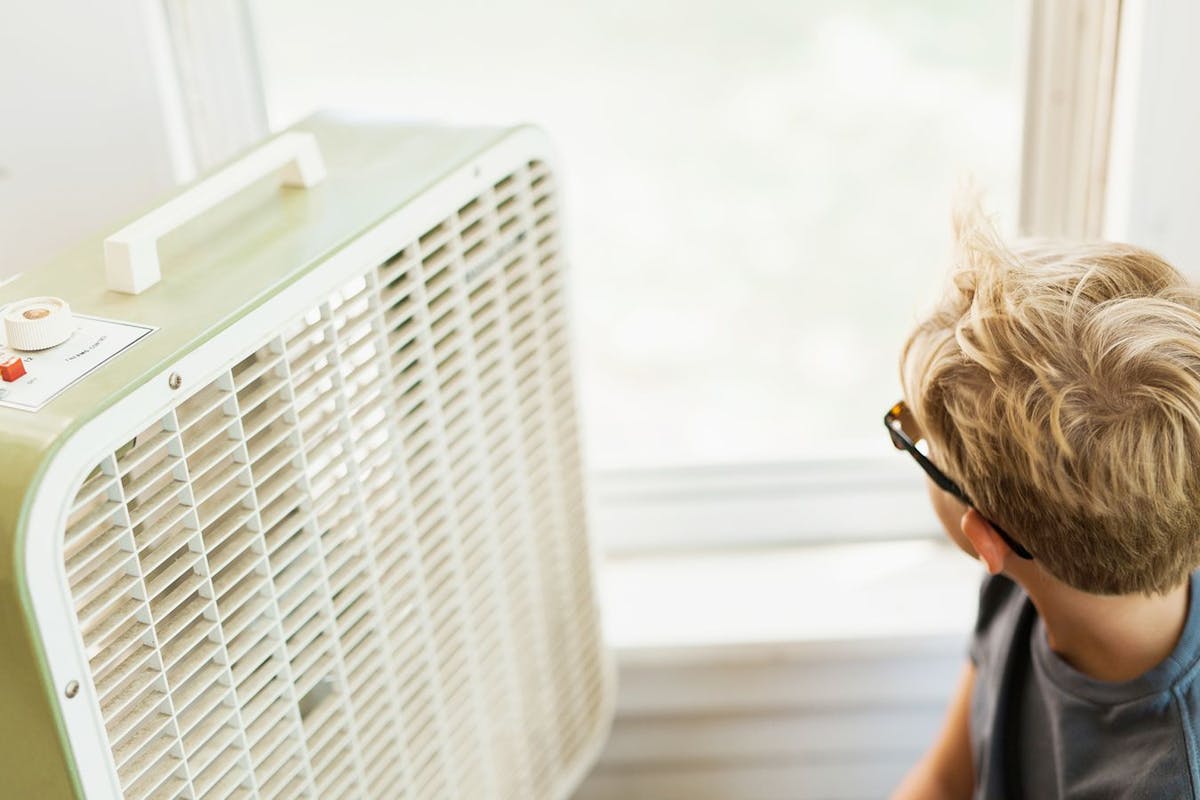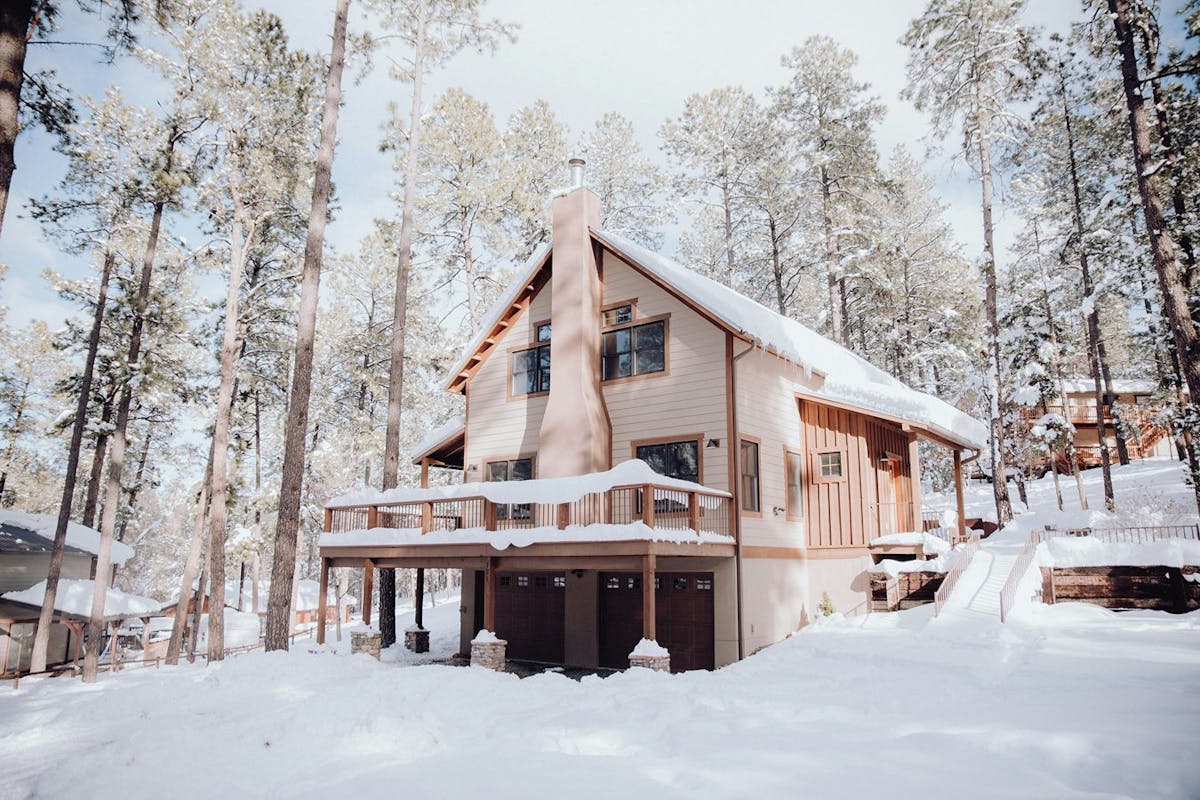Solar Lights: A Guide To Outdoor Lighting With Clean Energy
Last edited

Author
Andrew Giermak
Solar and Electrification Writer and Editor

Editor
Ryan Barnett
SVP, Policy & New Market Development

Solar lighting around your home can be a bright idea for numerous reasons. You can light up doorways, sidewalks, or areas around a pool for better safety and security. Do you want to use your deck, porch, garden, or basketball goal in the driveway more in the evenings? Think solar lights. They can also improve the look and feel of your home.
Outdoor solar lights are simple to install and use. They are inexpensive and don’t increase your electric bill because you’re using free, clean solar energy. Here’s how solar lights can make your home safer, more functional, and greener all at once.
See how much you can save by going solar with Palmetto
What Are Solar Lights?
Solar lights are a low-emission, energy-efficient, easy-to-install, and virtually maintenance-free way to illuminate the exterior of your home, walkways, driveways, decks, and patios. Additional popular uses of outdoor solar lights include lighting your yard, illuminating steps, identifying an address, keeping tabs on what might enter your fence, decorating your garden, and providing security lights.
Several different options and styles exist to accommodate those outdoor lighting needs. You can choose from compact spotlights that can be placed almost anywhere to larger lantern-style fixtures that add a welcoming glow to a porch and nearly everything in between.
How Does Solar Light Technology Work?
Most solar lights have a small solar panel, a solar battery that typically uses rechargeable lithium-ion technology, and one or more LED light bulbs. The solar panel absorbs sunlight during the day and uses the electricity to charge the battery, which then powers the LED light when it gets dark outside.
The downside of this technology is the amount of charge for your solar lights depends on the day's weather or the amount of sunlight in the light's location (don’t put it in the shade). Without enough sun, your solar lights won't store enough electricity and won't stay lit through the night.
Benefits of Outdoor Solar Lighting
Choosing solar lighting to illuminate the outside of your home comes with several benefits.
- No wiring needed: You can typically set them up in just a few minutes, making them the perfect option if you aren’t comfortable installing electrical wiring and don’t want to hire an electrician. It’s also a safer option if you’ve got kids or pets and a yard, deck, or driveway that’s busy sometimes.
- No electricity bill impact: Since they don't rely on electricity from the power grid, you won't increase your energy bill when using them.
- Longer lasting: Because they use LED bulbs and solar panel technology, solar lights can last longer than other types of lighting.
- Eco-friendly: They’re powered by renewable energy from the sun instead of electricity from fossil fuel.
- Flexible uses: Because they don't need access to electrical outlets, outdoor solar lights are particularly useful for outdoor spaces, meaning you can install them almost anywhere.
- Automatic on-off: Solar lights are designed to turn on automatically when it’s dark outside and turn off when the sun comes back out, so you don’t need to remember to switch them on and off each day to get coverage from dusk to dawn.
- Improved safety: They make your home safer by illuminating areas that might otherwise be dark.
- Light during blackouts: If the power goes out at your home, solar lights will still provide some illumination that can help you get around since they don’t rely on power from the grid.
Types of Solar Lights
The solar light fixture you choose usually depends on how you want to use the lights, where you want to place the lights, how many hours of sun exposure per day that location gets, and your overall decorating aesthetic.
- Solar deck lights: Generally used with a post or deck-mounting hardware, these lights can provide ambient light for decks, patios, porches, pathways, and walkways. These low-voltage solar lights are available in various styles and finishes.
- Solar spotlights: These focused beams are great for accenting a specific area of your home, such as a wall, tree, gates, or shrubbery, making them perfect for landscape lighting.
- Solar lanterns: Usually designed to hang from a hook, post, or exterior wall, solar lanterns provide accent lighting for patios, doorways, and gardens.
- Solar pathway lights: Similar to but smaller than post lights, they’re designed to shine brighter at ground level, making them ideal for illuminating lawns, gardens, paths, staircases, and walkways with specific solar step lights.
- Solar motion sensor flood lights: These solar security lights turn on when they detect nearby movement, making them great for safety and security in areas that don’t need constant light.
- Solar Christmas lights: Solar string lights are great for temporary holiday lighting and any area that needs more overall ambiance lighting when the sun goes down.
- Solar pool lights: Solar, motion-detecting lights can provide safety to a pool area or a gate to a pool. There is also a huge range of decorative options.
See how much you can save by going solar with Palmetto
How to Choose the Best Solar Lighting for Your Home
The solar lighting industry has grown enormously over the past few years, thanks to improvements in the underlying technology like batteries and LEDs. Homeowners can now enjoy the benefits of solar LED lights at a fraction of the cost of traditional lighting, and LED light bulbs last longer, shine brighter, and are less expensive than ever before.
If you want to know what to consider before installing solar lights around your home, the following questions will help you invest in the right outdoor solar lights for your property:
What do I want to do with my solar lights?
Solar lighting comes in two general categories, giving you the freedom to choose based on your needs and preferences.
- Ambient lighting: Provides a soft glow on paths or walkways, making it ideal for safety.
- Accent lighting: Provides bright, focused illumination in key areas, such as the front door or deck, making it ideal for security.
How many solar lights do I need?
To determine how many lights you will need to illuminate a desired outdoor area, consider the space you have and measure the distance between any trees, bushes, or existing lights. Then, look at the square footage each solar light is expected to illuminate and divide that number into the overall square footage you calculated to determine the quantity of lights you’ll need to provide good coverage.
If you’re looking for a motion-sensing solar light for security purposes, they have different sensor ranges, detection angles, and light coverages. You’ll want one that can sense movement at the appropriate distance and can provide enough light to cover the area you want to be protected. You may need a larger light with larger solar panels or a bigger battery to get the proper coverage from dusk to dawn.
Where should I install solar lights?
Outdoor solar lights come in a wide variety of shapes and sizes, from tiny solar-powered garden ornaments to large, heavy-duty spotlights that can light up your driveway or a path through the woods. This means you can place the lights in a range of locations to meet a variety of lighting and decoration needs.
Solar lights need sunlight. The more sunlight they receive, the brighter they will be. If your yard has lots of shady areas, you have to be more strategic and intentional about where you place your lights and how many you install. Another option is connecting an external solar panel located in dependable sunlight to your lights.
Can I install this solar light on my own?
Most solar lights are self-contained and designed to be installed in minutes with no professional help. Some can require a professional to assist with installation, so review the manufacturer's requirements and directions before purchasing.
Features to Compare With Purchasing Solar Lights
- Battery: Research the battery's expected lifespan, both in terms of the daily hours of light it can provide and the product's expected lifetime.
- Brightness: Some lights are brighter than others, so you’ll want to compare brightness and pick one that’s appropriate for your needs. Brighter is often better for security purposes, but for ambience, it depends on your taste.
- Temperature: White light LEDs also come in a variety of colors (often called temperature). Some cast a more blue ‘cool’ white and others have a more yellow ‘warm’ white, so pick one that matches the mood you’re looking for. You can even get solar lights that can change temperature or turn any color of the rainbow.
- Warranty: Make sure to pick a light from a brand that’s willing to stand by their product with a strong warranty, and replace the solar light if anything goes wrong within a reasonable amount of time.
Best Brands for Outdoor Solar Lights
The key to finding the best lights for your home is to focus on quality over aesthetics. Yes, you want attractive lighting, but it also needs to be reliable. That will make all the difference in how long they last and how well they illuminate your space. To accomplish that goal, you should invest in the best solar lighting from leading companies, whether you’re looking for smaller solar garden lights or a full solar-powered security system.
Brightech
Brightech has been a leader in solar-powered outdoor lights for over 10 years, and its solar-powered string lights are a great way to add ambiance to an outdoor space.
Hampton Bay
Hampton Bay is Home Depot’s in-house brand, and makes everything from spotlights and path lights to solar LED flag poles and decorative fixtures.
JACKYLED
JACKYLED offers a variety of solar light options, including security-focused wall lights that can output more than 1,000 lumens.
Ring
Ring has a variety of solar light styles that includes path lights, spotlights, stoplights, and wall lights. They connect to the Ring App to enable smart lighting benefits like turning on when motion is detected or when a security camera needs to record.
Sunforce
Sunforce has products that can help illuminate your entryway, walkway, driveway, front lawn, or backyard with customizable settings and durable housings to meet all of your lighting and security needs.
Light Your Home With Solar Lights
Outdoor solar lights are a great choice for people who want to illuminate their yards, gardens, and walkways at night. If you're looking to spruce up your home, solar lighting is a great way to add light without the hassle of running electrical lines or replacing batteries all the time.
These systems don't draw energy from your home, so you won’t increase your utility bill, and once they’re set up, you don't have to worry about them. They'll just keep working for you automatically.
If you're thinking about installing solar lighting around your home, you should first decide what kind of lights you want and where you want them. There's a wide range of options available, including floodlights (for security), spotlights (for highlighting key features in your yard), string lights (for creating ambiance), and more.
If you’re also interested in installing solar panels so you can power your entire home with solar energy, including your lights, talk to Palmetto today. You can get started today with our Free Solar Design and Savings Estimate. Or contact us to see how much you could save by going solar and take the first step towards a home powered by clean, green energy.
See what solar can do for you:
Frequently Asked Questions
How much sunlight do solar lights need?
Outdoor solar lights will work with direct or indirect sunlight. Generally, the more sunlight hours they receive, the more power they will have stored for nights. Solar lights will still gather some electricity on cloudy days but may be less efficient and not last as long overnight.
Can I leave solar lights out in the rain?
Yes, virtually all solar lights available now are made to be water-resistant and work fine for years in the elements. Rain is not an issue for solar lights if they have the correct rating for outdoor use.
Why do I want LED lights outside?
There are a number of reasons to use LED bulbs in outdoor lighting. LED light bulbs have longer lifespans, are more energy efficient, are more weather-resistant, are not hot to the touch, and can have smart features such as changing color.


